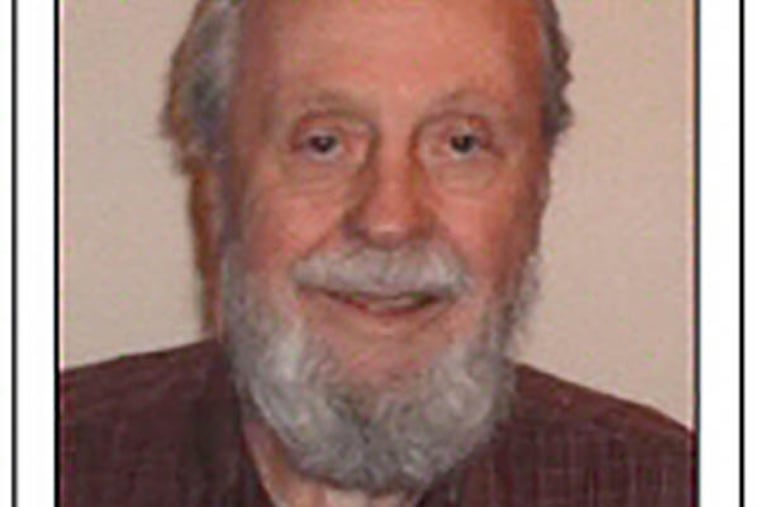Ross V. Speck, 87, psychiatrist, teacher, author
Jean Barr was the chief social worker when Dr. Ross V. Speck was the director of the department of social psychiatry at Hahnemann Medical College from 1964 to 1970.

Jean Barr was the chief social worker when Dr. Ross V. Speck was the director of the department of social psychiatry at Hahnemann Medical College from 1964 to 1970.
"There weren't many that would tackle the kinds of things that he would," Barr recalled.
"Who else would go into these communes," in college neighborhoods such as Powelton in West Philadelphia, "and work with kids?
"We would go for two or three hours in the evenings and get to know them pretty well," talking about their addictions.
"They were pretty mixed-up cookies when we went in," she said, but many "graduated from college and ended up in the workplace."
Dr. Speck, she said, "was willing to try what no one else was willing to touch. And it worked."
On Saturday, May 23, Dr. Speck, 87, of Thorofare, died of complications from atrial fibrillation at home.
In the 1960s, Barr said, Dr. Speck was one of 14 founders of the Family Institute in Philadelphia, in the Spring Garden neighborhood.
Born in St. Catharines, Ontario, he graduated in 1944 from St. Catharines Collegiate High School and after a seven-year undergraduate and graduate program earned his medical degree at the University of Toronto in 1951, son David said.
After serving his psychiatric residency, in part at the former Philadelphia General Hospital in 1954-55, Dr. Speck became a U.S. citizen in 1957 while fulfilling his military obligation at Brooke Army Medical Center in San Antonio, Texas.
While operating a part-time practice in psychiatry and psychoanalysis in Philadelphia from 1958 to 1988, Dr. Speck held several positions in the city.
He was clinical director at the Eastern Pennsylvania Psychiatric Institute in Philadelphia from 1958 to 1964, associate professor of psychiatry at Hahnemann Medical College from 1960 to 1970, and part-time researcher at the Philadelphia Psychiatric Center from 1966 to 1972, he wrote in his resumé.
From 1980 to 1990, Dr. Speck was a part-time clinical professor of psychiatry at Thomas Jefferson University.
At the same time, from 1980 to 1993, he was a part-time professor at what became the Union Institute in Cincinnati and later a full-time professor there.
In 1993, the Robert Wood Johnson Medical School in New Brunswick, N.J., gave him its award for "lifetime contributions and dedication to the field of family therapy," his resumé stated.
He published several scholarly papers, was a member of several professional organizations, and was the author of the book The New Families: Youth, Communes, and the Politics of Drugs (1972).
Besides his son, Dr. Speck is survived by sons Drew, Dean, and Daniel; daughters Diana Silvestri, Deborah Battaglino, and Daphne Speck-Bartynski; stepsons Steven and Michael Lincoln; two brothers; two sisters; 12 grandchildren; 10 great-grandchildren; and former wife Margaret. He was predeceased by wife Joan Lincoln Speck.
Services are to be private.
Donations may be sent to charities of one's choice concerned about arthritis, Alzheimer's disease, and lupus. Condolences may be offered to the family at www.daviswagner.com.
610-313-8134@WNaedele